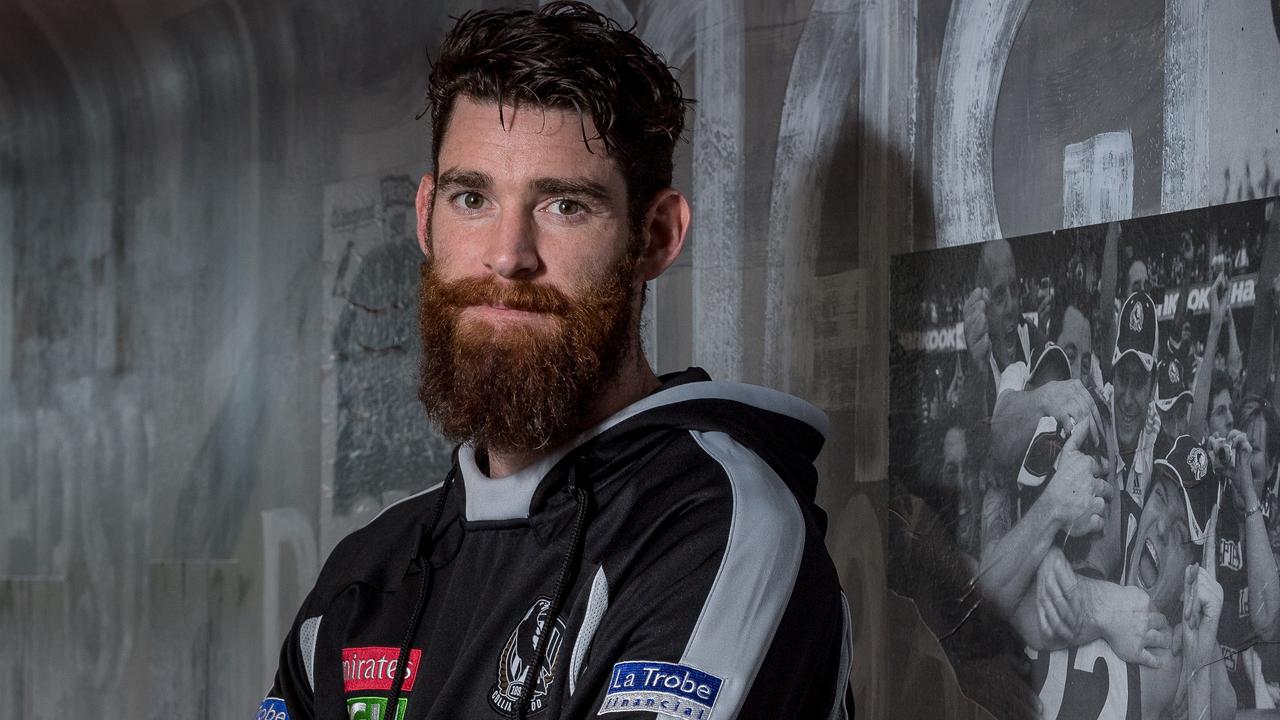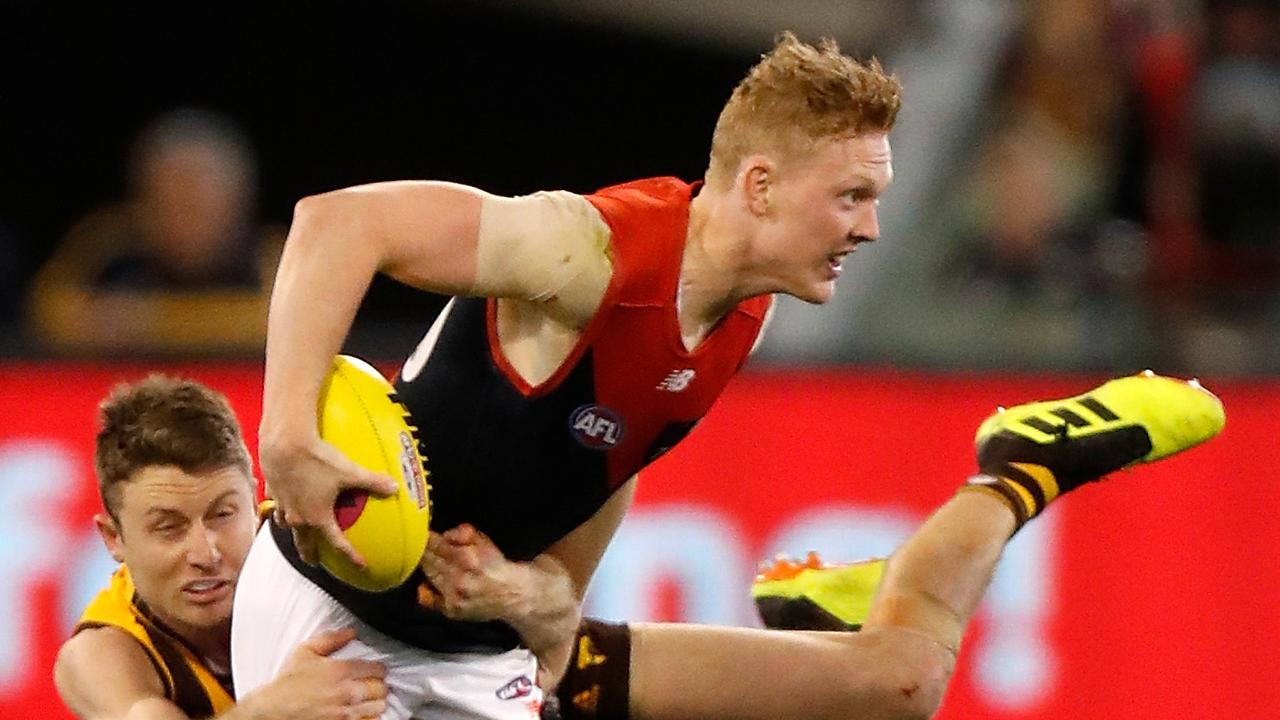Dustin Martin and Nat Fyfe show being a one-club player still matters, writes Matthew Lloyd
WHAT Nat Fyfe and Dustin Martin have shown that in a game now spoken of more as a job than a love, being a one-club player is still as attractive as ever, writes MATTHEW LLOYD.
Matthew Lloyd
Don't miss out on the headlines from Matthew Lloyd. Followed categories will be added to My News.
MATTHEW Richardson spoke during the week of the rewards that can come with being a one-club player.
“Richo” spoke of the flow-on effect for a player such as Dustin Martin, who will end his career as a Richmond great with 300-odd games to his name, multiple Jack Dyer Medals and at least one Brownlow Medal.
Imagine if he does the unthinkable and leads Richmond to this year’s flag.
MATES RATES: WHY DUSTY GAVE UP $2 MILLION TO STAY
MANAGER’S HARD BARGAIN: THE ART OF RALPH
FOOTY SHOW RECAP: WHAT DID DUSTY AND HIS DAD SAY?
ANALYSIS: NORTH STILL CHASING TOP-LINE TALENT
“Dusty” would be thrown the keys to Punt Rd and be the most loved player in the club’s history, surpassing even Richo himself.
With the explosion in the salary cap, the introduction of free agency and the ability for players to leave clubs while under contract, I started to think the romance of being a one-club player was dead.
I would never begrudge any player leaving a club to look after himself and his family’s best interests, but seeing Nat Fyfe re-sign with Fremantle, Joe Daniher with Essendon and Mitch McGovern remain with Adelaide was sensational.
Bob Murphy may not have won a premiership or a best-and-fairest with the Western Bulldogs, but he is the epitome of the one-club player whom fans just adore.
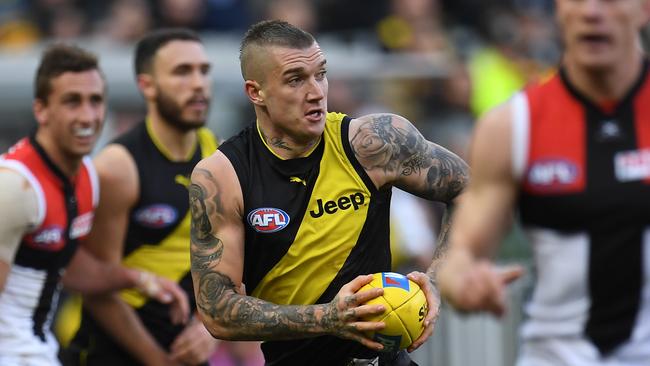
You can’t picture Murphy in anything other than a red, white and blue jumper. Like the father-son rule, it is one of the few traditions left and it will never be lost to our game.
Unless you are a North Melbourne supporter, nobody wants to see Martin in anything other than a Richmond guernsey.
I have no attachment to any of the clubs involved, but it just feels right that Martin remains a Richmond cult figure. Maybe it’s the football romantic in me.
Family will always come before football for most, and greats Chris Judd and Patrick Dangerfield left strong clubs, West Coast and Adelaide, to be closer to family.
Recruiters from non-Victorian clubs look for homegrown talent for that very reason, as the pull from home can be too much for some.
At least Western Australia and South Australia are football strongholds and they will continue to produce players who are happy to stay there.
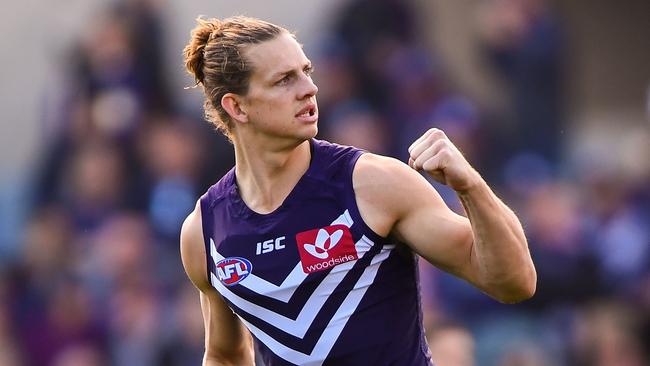
The challenge for Gold Coast and Greater Western Sydney is to build a culture like Sydney, where players don’t want to leave. The Giants are well on the way.
All-Australian Josh Kelly is poised to enjoy a career as good as Judd and Dangerfield, and while so much has been made of Martin’s signature at Richmond, GWS would be gutted to lose a future captain after only four years.
With so much success on the horizon, it wouldn’t surprise to see Kelly sign short-term for the Giants and return home in a couple of years.
The Giants, of course, will hope they can convince him in the meantime to commit for the rest of his career.
The Swans’ ability to retain players is extraordinary.
The Bloods’ culture is second to none and, like Geelong, Sydney has an amazing ability to attract outstanding players, retain them and never bottom out.
Daniel Hannebery, Luke Parker, Zak Jones and Sam Reid are all Victorians who I can’t see playing anywhere else bar the Swans.

This year, Murphy, Luke Hodge, Nick Riewoldt, Jobe Watson, Leigh Montagna, Matthew Boyd, Tom Lonergan, Andrew Mackie and Matthew Priddis bow out as one-club champions.
In a game now spoken of more as a job than a love, it is still rare that a player leaves a club solely for more money. It is generally for family reasons or greater opportunity, which is what I love about our code.
The fans love to see a player such as Hodge or Martin start out as a 17-year-old who can’t run out of sight on a dark night, and even with extra baggage around the waistline, but then blossom into a club great over a long career.
Football is a business, but players’ loyalty to the clubs to which they were drafted is still strong, despite the talk every year of a huge trade period.
It rarely eventuates and the players’ love of their clubs, teammates and supporters generally wins out.
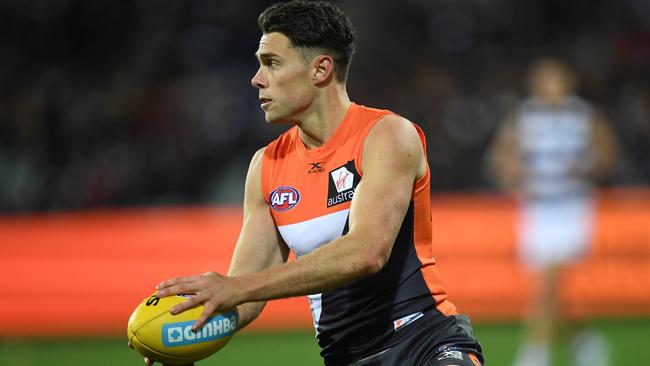
The bond players form with their teammates is the strongest factor in staying put.
Look at Essendon — who would have imagined the Bombers would retain all bar three or four players after what went on? It all stems from the bond and care the players have for one another.
Football clubs are special places to be a part of, even better when you find a good one.
They draw you in like a magnet and relationships generally override financial gain.
The pull of family may prove too much in the end for Kelly and Adelaide’s Jake Lever, but, in Dustin Martin’s case, Richo was bang on the money.

